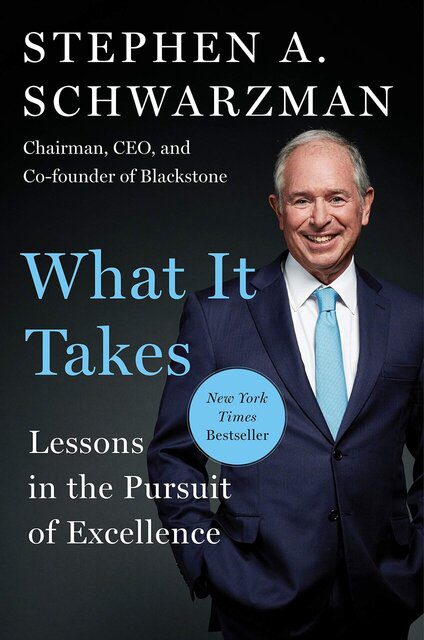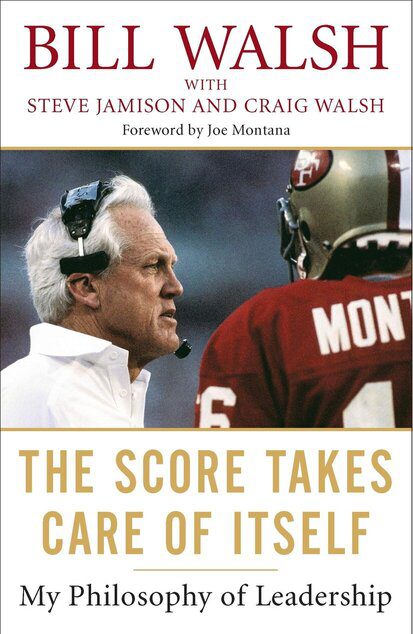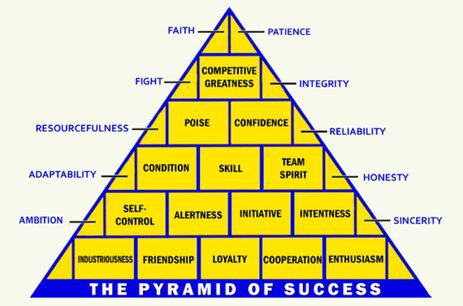“Success is peace of mind that is the direct result of self-satisfaction in knowing you did your best to become the best that you are capable of becoming.” – John Wooden
Success is never an accident, and failure is usually not a coincidence. As author Jim Rohn put it,
“Success is nothing more than a few simple disciplines, practiced every day; while failure is simply a few errors in judgment, repeated every day. It is the accumulative weight of our disciplines and our judgments that leads us to either fortune or failure. Failure is not a single, cataclysmic event. We do not fail overnight. Failure is the inevitable result of an accumulation of poor thinking and poor choices.”
To be successful, you don’t have to do extraordinary things, just do ordinary things extraordinarily well. You don’t have to be great to start, but you have to start to be great. The road to becoming successful in any endeavour takes a lot of grinding, grit, perseverance, persistence and hard work. Overnight success usually takes 10+ years of drills, workouts, pitch, reps, laps, sessions, roadwork, training, practice, preparation, routine and regimen. As the saying goes, “We play the way we train”. You cannot take people farther than you have gone; garbage in – garbage out.
If you work hard, what is hard would work but if your take shortcuts, you would be cut short.

Success is about taking advantage of those rare moments of opportunity that you can’t predict but come to you provided you’re alert and open to major changes. To be successful you have to put yourself in situations and places you have no right being in. You shake your head and learn from your own stupidity. But through sheer will, you wear the world down, and it gives you what you want. 1
Success comes down to rare moments of opportunity. Be open, alert, and ready to seize them. Gather the right people and resources; then commit. If you’re not prepared to apply that kind of effort, either the opportunity isn’t as compelling as you think or you are not the right person to pursue it.

The Marathon Called Life
Think about the marathon runner. She has to go 26.2 miles, but is she thinking about the finish line when the race starts? No. That’s too daunting. She’s thinking about her pacing for the first mile. She’s planning out when she wants to grab water or eat a gel pack. Thinking about all 26.2 miles is overwhelming. Thinking about the next few steps is manageable, and it works whether you’re running a race, playing for a spot in the Super Bowl, or trying to save your own life in space.
— ANYONE who runs a marathon will tell you that miles twenty to twenty-six are the hardest.
— AND ANYONE who quits running at mile twenty-two will tell you that they im- mediately felt better—and IT’S TRUE. But days later when they read about the people who finished ahead of them—who kept running—they will have instant regret.
Our challenge every day is to ignore the choice that makes us feel better now so we can make the choice that can help sustain us. Marathon runners tend not to quit on mile twenty-two—even though they would feel much, much better in the moment—because they’ve stacked up choices that prioritize finishing that freaking race. In many cases, they’ve adjusted their diets, their sleep schedules, their work schedules. That can’t all be for nothing, so they keep running. 2
Average is a choice. Greatness is a choice. There is no magic. Only decisions. Great teams behave like great teams. Their behaviors precede their success. Their behaviors create their belief. Behaviors are not only what we do, but what we are willing to not do.

There is no guarantee, no ultimate formula for success.
A resolute and resourceful leader understands that there are a multitude of means to increase the probability of success. And that’s what it all comes down to, namely, intelligently and relentlessly seeking solutions that will increase your chance of prevailing in a competitive environment. When you do that, the score will take care of itself.
Pursuing your ambitions, especially those of any magnitude, can be grueling and hazardous, and produce agonizing failure along the way, but achieving those goals is among life’s most gratifying and thrilling experiences. The ability to survive and overcome the former to attain the latter is a fundamental difference between winners and losers. 3
“Do all the right things to precision and “the score will take care of itself”

John Wooden’s math teacher when he was a sophomore at Martinsville High School in Indiana was Mr. Lawrence Shidler. Occasionally he discussed topics other than mathematics. One day, he instructed his pupils to write a paper defining success. He wanted them to start thinking about the concept of success and whether it just meant getting rich or famous or beating somebody in a ball game.
After completing Mr. Schidler’s homework assignment, John began thinking hard about the concept of success and he has reflected on it for decades. After graduating from Purdue, he continued to be intrigued by the definition of success. He became dillusioned about the definition of success even futher when he entered the teaching and coaching profession. He was baffled by the expectations placed on the students and players under his supervision.
“In struggling to find an answer to the question Mr. Shidler had posed years before, I recalled what my dad had constantly tried to get across to us when we were growing up back on the farm: don’t worry much about trying to be better than someone else.
“Always try to be the very best that you can be. Learn from others, yes. But don’t just try to be better than they are. You have no control over that. Instead try, and try very hard, to be the best that you can be. That you have control over. Maybe you’ll be better than someone else and maybe you won’t. That part of it will take care of itself.”
Keeping all these in mind, in 1934, John coined his definition of success :
“Success is peace of mind that is the direct result of self-satisfaction in knowing you did your best to become the best that you are capable of becoming.”
Only one person can ultimately judge the level of your success-you. Anything stemming from that success is simply a by-product, whether it be the score, the trophy, a national championship, fame, or fortune. They are all by-products of success rather than success itself, indicators that you perhaps succeeded in the more important contest. That real contest, of course, is striving to reach your personal best, and that is totally under your control. When you achieve that, you have achieved success. Period! You are a winner, and only you fully know if you won. 4
Success requires single-mindedness of purpose, persistence in the face of obstacles and tribulations, sweating the small stuff and paying attention to details. It is not a matter of if; it is a matter of when. We get rewarded in public for what we diligently practiced in the dark. It takes courage, consistency, drive, passion, grit and a bit of luck to become successful; just make sure you do your best. Good, better, best. Never let it rest. Until your good is better and your better is best.
Knowing trees, I understand the meaning of patience. Knowing grass, I can appreciate persistence. – Hal Borland
Podcast
- Achieve The Impossible THE ED MYLETT SHOW
Touch your Dreams: You will never get more than you think you deserve. You would never be where you don’t believe that you belong.
Your mind gravitates toward what it is most familiar with.
- Sensory Acuity: If you continue to live unfamiliar with your dreams, you die unfamiliar with them. You take the possibility to probability through mental rehearsal, repetition, and conditioning.
All the best in your quest to get better. Don’t Settle: Live with Passion.



Comments are closed.